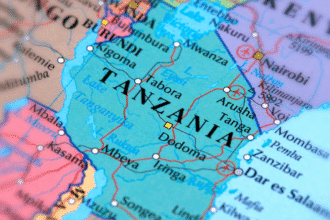From terrorism to sustainable development, Russian President Vladimir Putin has stated Russia’s will to help Africa by addressing a broad spectrum of issues. Speaking through Russian Foreign Minister Sergei Lavrov at the Black Sea resort of Sochi, Putin’s message to African leaders stressed “total support” in tackling terrorism, extremism, and economic challenges. The comment emphasizes Russia’s increasing importance as a substitute ally for African nations, some of whom are divorcing conventional Western alliances.
- Is Africa Shifting Away from Western Alliances?
- What Role Does the Wagner Group Play in Military Support?
- How Is Russia Expanding Its Diplomatic Influence in Africa?
- Is There a Global Competition for Influence in the Sahel?
- Is Rwanda Expanding Its Nuclear Cooperation with Russia?
- What Are the Outcomes of Russia's Trade Ambitions with Africa?
Is Africa Shifting Away from Western Alliances?
Former Western allies, some African countries have since severed relations and are looking for help from Moscow instead.
The Foreign Minister of Burkina Faso freely expressed this inclination, saying Russia presented a more suitable alliance than France, the former colonist.
Reflecting the attitude of many African leaders who have seen protracted instability and insurgency attacks in recent years, he said, “Russia is a more suitable partner in these trying times.”
Reflecting this position, Mali’s Foreign Minister contrasted what he said of Russia’s “sincere” alliance with the “neo-colonial” ties pursued by Western nations. “Beyond military cooperation, we are investigating joint ventures in energy,
telecommunications, technology, and mining sectors,” he said. With an eye toward “providing solutions to the challenges facing the Malian people,” he noted that Russian businesses are already actively working with Mali’s government and private sector.
What Role Does the Wagner Group Play in Military Support?
Russia’s support reaches into the domain of military assistance rather than only economic cooperation.
Several African governments who have rejected Western military have come to rely on the well-known Russian mercenary company The Wagner Group, which now flies under the “Africa Corps” banner. As they dispatched French and UN troops, leaders in Mali, Burkina Faso, and Niger asked these fighters for help.
Russia’s backing comes with a promise to avoid meddling in the domestic affairs of partner nations, even though access to valuable raw materials usually comes in trade for it.
This strategy has contributed to its appeal as Russia won’t “give lessons” on government or elections, and this technique guarantees that. Nonetheless, the security situation in Burkina Faso, Mali, and Niger remains challenging even with Russian support since Russian forces have not yet significantly affected the war against Islamist militants.
How Is Russia Expanding Its Diplomatic Influence in Africa?
Moscow wants to emphasize how close it is now to Africa. The spokesman of Russia’s Foreign Ministry pointed out that Western hopes of Russia’s worldwide isolation were dashed at the Sochi summit.
Agreeing, Lavrov said, “Our relations with Africa are progressing more and more on all axes,” stressing the increasing extent of Russian-African collaboration.
Putin’s summit written statement confirmed this dedication. Underlining Russia’s comprehensive aspirations in Africa, the statement said, “Our country will continue to provide total support to our African friends in different sectors: ensuring sustainable development, the struggle against terrorism and extremism, combating epidemics, food problems, and the consequences of natural disasters.”
Is There a Global Competition for Influence in the Sahel?
A spokesman of the European Union for the Sahel area admitted the complexity of Africa’s changing alliances and advised the West to grasp these changing dynamics.
Although the diplomat described Russia as “certainly a very malicious actor,” she also pointed out that Russia has long-standing ties in Africa from the colonial era and that other world players, including Saudi Arabia, Turkey, and Iran, as well as several EU members and the UK, are also vying for influence in the Sahel.
“It’s mostly a desert, but in reality, the area is quite crowded,” the official said. They underlined that African governments are pragmatic in diversifying their alliances and highlighted the need for the Eto keep its commitment to Burkina Faso, Mali, and Niger.
Referring to these three countries, they characterized them as “difficult countries” confronting many difficulties and underlined that the relationship between Africa and its allies should not be seen as competitive.
Is Rwanda Expanding Its Nuclear Cooperation with Russia?
Russia’s cooperation with Africa extends into the nuclear field; Rwanda’s recent agreements to get Moscow’s help in developing a nuclear power facility attest to this.
Among several African countries looking at atomic power possibilities with Russian assistance, Rwanda, which maintains close relations with the UK and other Western nations, also attends the Sochi conference. Rwanda’s Foreign Minister discussed this cooperation and mentioned that hundreds of Rwandan graduates from Russian colleges, including those specialized in nuclear research, are attending the Sochi conference.
The minister stressed the mutual advantages of this scientific and educational cooperation, “We hope to be able to train a certain number of scientific managers specializing in this field.”
What Are the Outcomes of Russia's Trade Ambitions with Africa?
Putin promised to quadruple commerce with Africa five years ago, but this promise has yet to come true. Russia’s trade with Africa still lags behind its objective, but Moscow’s influence on the region has expanded dramatically, usually via means the West sees as destabilizing.
Zimbabwe Abolishes the Death Penalty: A Landmark Move for Human Rights








